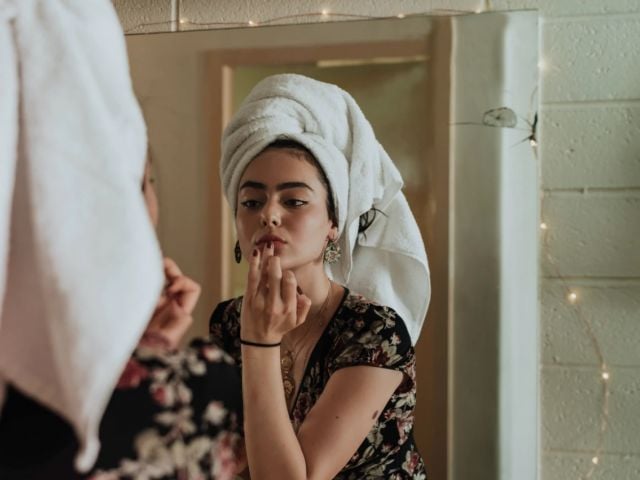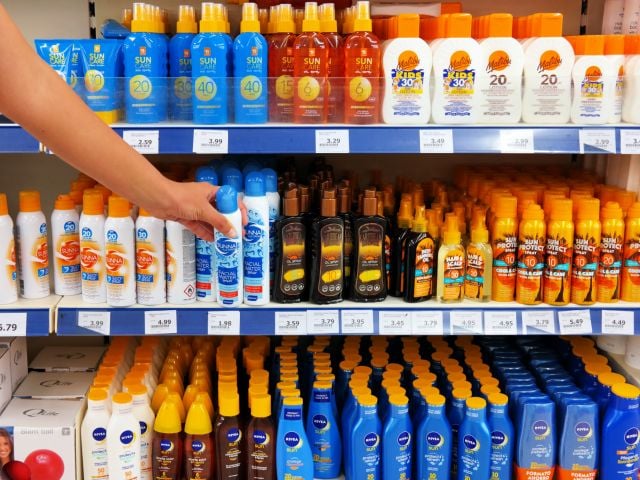
Of course the best defenses against getting too much harmful UV radiation are:
- Protective clothes,
- Shade, and
- Timing.
But when those aren't options, it's time to get out the sunscreen.
Some sunscreens prevent sunburn but not other types of skin damage. Make sure yours provides broad-spectrum protection and follow our other tips for better protection:
Don't be fooled by a label that boasts of high SPF. Anything higher than "SPF 50+" can tempt you to stay in the sun too long, suppressing sunburn but not other kinds of skin damage. FDA says these numbers are misleading. Stick to SPF 15-50+, reapply often and pick a product based on your own skin, time planned outside, shade and cloud cover. Learn more about sky-high SPFs.
News about Vitamin A. Eating vitamin A-laden vegetables is good for you, but spreading vitamin A on the skin may not be. New government data show that tumors and lesions develop sooner on skin coated with vitamin A-laced creams. Vitamin A, listed as "retinyl palmitate" on the ingredient label, is in 41 percent of sunscreens. Avoid them. Learn more.
Ingredients matter. Avoid the sunscreen chemical oxybenzone, a synthetic estrogen that penetrates the skin and contaminates the body. Look for active ingredients zinc, titanium, avobenzone or Mexoryl SX. These substances protect skin from harmful UVA radiation and remain on the skin, with little if any penetrating into the body. Also, skip sunscreens with insect repellent - if you need bug spray, buy it separately and apply it first. Pick a good sunscreen. EWG's sunscreen database rates the safety and efficacy of about 1,400 products with SPF, including about 500 sunscreens for beach and sports. We give high ratings to brands that provide broad-spectrum, long-lasting protection with ingredients that pose fewer health concerns when the body absorbs them
Cream, spray or powder - and how often? Sprays and powders cloud the air with tiny particles of sunscreen that may not be safe to breathe. Choose creams instead. Reapply them often, because sunscreen chemicals break apart in the sun, wash off and rub off on towels and clothing.
Message for men: Wear sunscreen. Surveys show that 34 percent of men wear sunscreen, compared to 78 percent of women. Start using it now to reduce your cumulative lifetime exposure to damaging UV radiation.
Got your Vitamin D? Many people don't get enough vitamin D, which skin manufactures in the presence of sunlight. Your doctor can test your level and recommend supplements or a few minutes of sun daily on your bare skin (without sunscreen). Learn more.
Download our 1-page sun safety tip sheet so it's handy when you need it.



